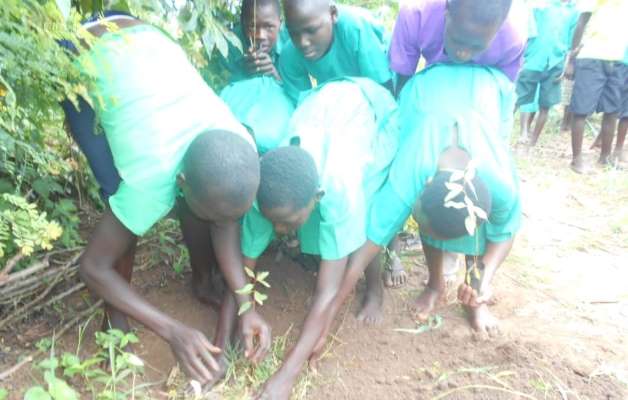There is a great deal of effort around the world to plant trees to help counter climate change. Of course, trees have many additional benefits, from increasing shade to providing a source of income.
In Kenya’s Kisumu region, tree planting and cultivation in rural villages is often led by students through their School Environmental Clubs. These clubs, set up by development organization World Neighbors and its local partners, focus on a range of issues, from water and soil conservation, to organic farming techniques, to advocating with local government bodies. Cultivating and planting trees is a large focus.
Earlier this year, School Environmental Clubs in Kisumu established a tree nursery with 900 seedlings available to local villages. These are fast-growing trees. Once planted, they provide shade and protect homes and other structures against wind. Crucially, fast-growing branches can be harvested for firewood, reducing pressure on public forests. Students teach community members how and where to plant the trees, along with ways to conserve water, produce and use organic fertilizers and more.
Demand for trees has led School Environmental Clubs to expand the nursery to accommodate an additional 1800 seedlings.
Young people generally take climate change seriously. As they are learning in Kenya through their School Environmental Clubs, addressing it can have numerous benefits, including economic.








